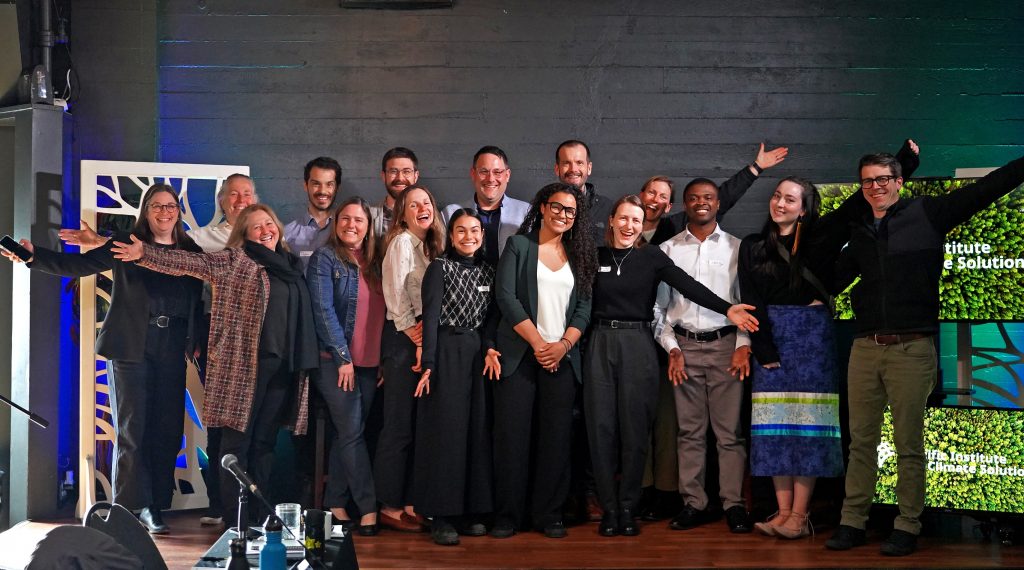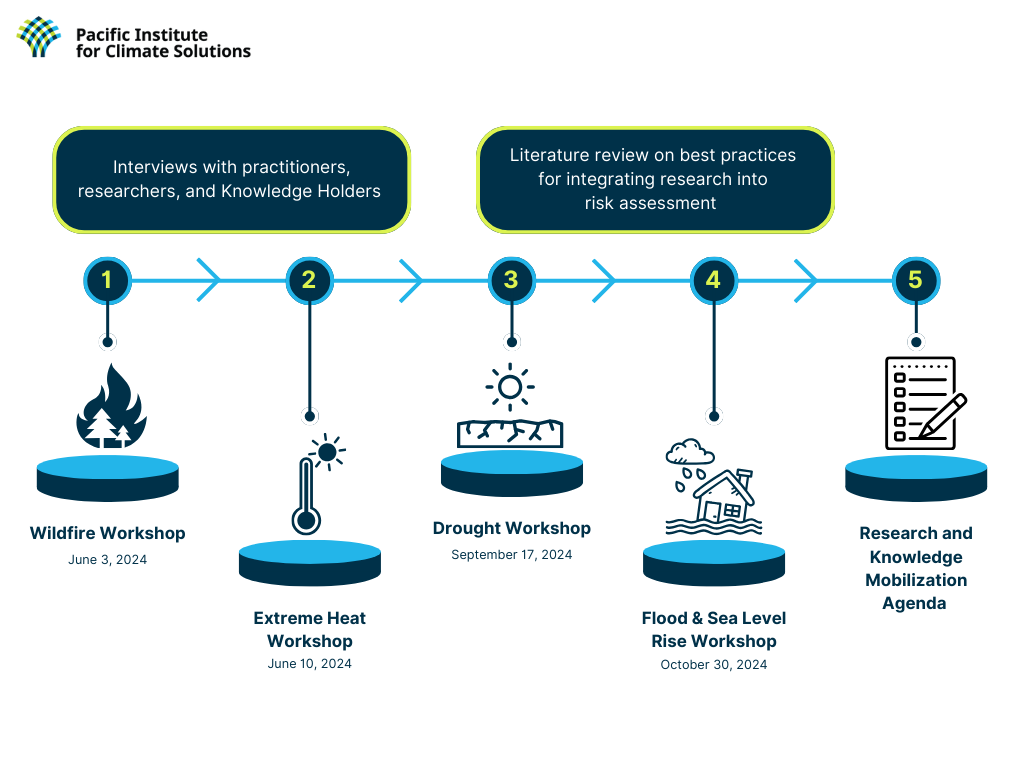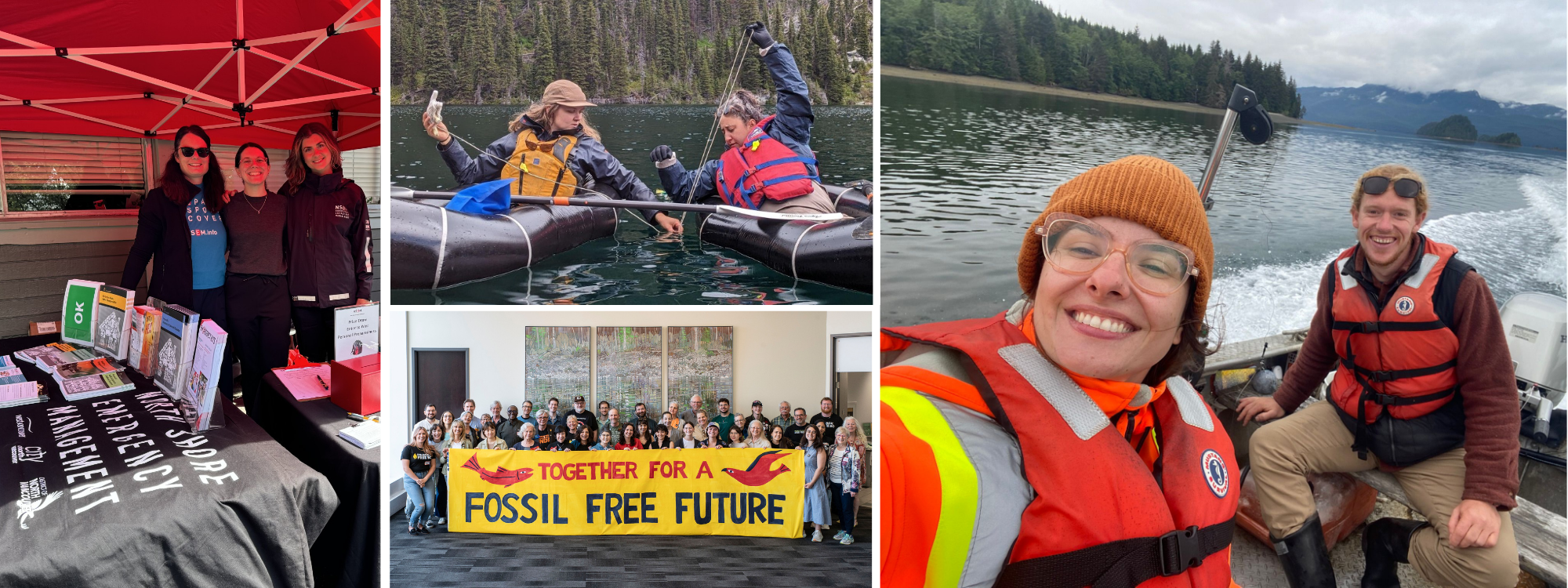How can B.C. communities integrate research and diverse knowledges into climate risk assessments?
It is said that what gets measured, gets managed. Risk assessments are the common measuring tape used to assess current and future climate risks. Climate risk assessment use has grown rapidly over the past decade with use in both the public and private sector.
Over the past year, the Pacific Institute for Climate Solutions (PICS) has been leading work to update the climate risk tape measure. As climate-related risks continue to evolve so too should the tools used to measure and evaluate the risks. It is especially important that new research and knowledge support communities in planning for long-term resilience.
PICS is working with top researchers, practitioners, and Knowledge Holders to improve how climate risk assessments are done. The project, guided by an academic advisory group with members from across the province, is identifying research gaps and priorities, and uncovering the best ways to integrate research into climate risk assessments.
Introducing PICS’ Climate Risk and Resilience Academic Advisory Group

The Climate Risk and Resilience Academic Advisory group’s 14 members are experts in wide-ranging subjects, including wildfire, drought, flooding, extreme heat, health, climate justice, knowledge systems, cascading risks, hydrological sciences, forestry, engineering, and emergency management.
| Diana Allen | Simon Fraser University (SFU), Department of Earth Sciences |
| Natalie Ban | University of Victoria (UVic), Environmental Studies |
| Samuel Bartels | University of Northern British Columbia (UNBC), Faculty of Environment |
| David Bristow | UVic, Civil Engineering |
| Craig Brown | Vancouver Coastal Health / Royal Roads University |
| Robin Cox | Royal Roads University, Resilience by Design |
| Emily Dicken | North Shore Emergency Management |
| Mike Flannigan | Thompson Rivers University, Faculty of Science |
| Maya Gislason | SFU, Faculty of Health |
| Kira Hoffman | UBC, Faculty of Forestry |
| Maggie Low | UBC, Indigenous Community Planning at the School of Community and Regional Planning |
| Joseph Shea | UNBC, Environmental Geomatics |
| Rita Steele | SFU, Continuing Studies |
| Brent Ward | SFU, Department of Earth Sciences |
The advisory group is providing the project with expert insights on improving climate risk assessment practices, that will eventually be shared with the Ministry of Emergency Management and Climate Readiness. The members’ first-hand experience assessing drought, fire, floods, and extreme heat risk, and the cascading impacts, have guided how PICS engages diverse ways of knowing.
“Collaboration is essential as communities and the province face the challenges of this type of work. I’m grateful to be part of this collaborative work on how to make risk assessment frameworks do their job well for communities and practitioners.”
– Rita Steele
Simon Fraser University’s manager of sustainable operations and an instructor for SFU’s Climate Action certificate
Throughout 2024, PICS is hosting workshops on wildfire, extreme heat, drought, flooding, and sea-level rise. These workshops foster crucial discussions among researchers, Knowledge Holders, and professionals.
PICS has also interviewed 22 experts on climate risk and resilience, identifying research gaps and opportunities for knowledge mobilization, capacity building, and funding. PICS is conducting a literature review on the current state of climate risk research in British Columbia and how research can be meaningfully integrated into risk assessments to support climate adaptation.

In Spring 2025, PICS will draw from the workshops, interviews, and literature review to develop a research and knowledge mobilization agenda and recommendations to the province on climate risk assessment. PICS will share a range of resources demonstrating how research can strengthen climate risk and resilience assessments, and supporting informed decision-making and increased community resilience.
This project is funded by the Ministry of Emergency Management and Climate Readiness. For more information about the project, please contact Project Manager Caroline Merner.


